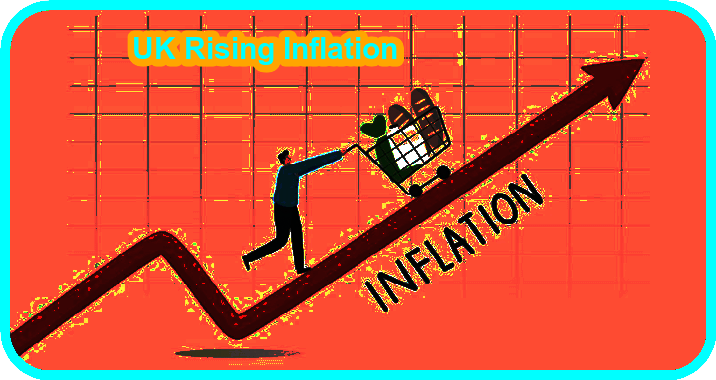Ever rising inflation Impact on UK households and businesses is taking a toll on the UK population. It is a critical economic factor that affects the daily lives of UK households and the operations of businesses.
With the rising cost of living and fluctuating market conditions, understanding the impact of inflation is essential.
Impact on UK Households
- Increased Cost of Living
- Food and Groceries: Rising prices for essential items such as food and groceries are hitting households hard. This leads to higher monthly expenses and reduces disposable income.
- Utilities and Fuel: The cost of utilities, including electricity and gas, along with fuel prices, have significantly increased, straining household budgets.
- Housing Costs
- Rent and Mortgages: Inflation drives up rental prices and mortgage interest rates, making housing less affordable for many. This situation forces households to allocate a larger portion of their income towards housing expenses.
- Wages and Employment
- Stagnant Wages: While living costs rise, wages have not kept pace with inflation. This results in a decrease in real income, reducing the purchasing power of households.
- Job Market: Inflation can lead to uncertainty in the job market, with businesses potentially cutting jobs or freezing hiring to manage costs.
Impact on UK Businesses
- Operational Costs
- Raw Materials and Supplies: Businesses face increased costs for raw materials and supplies, leading to higher production costs. This is particularly challenging for manufacturing and retail sectors.
- Transport and Logistics: Higher fuel prices and logistics costs impact the overall cost structure of businesses, leading to increased prices for end consumers.
- Pricing Strategies
- Price Adjustments: To maintain profitability, businesses often pass on the increased costs to consumers through higher prices. This can affect demand and customer loyalty.
- Competitive Pressures: Companies must carefully balance price increases to remain competitive, especially in sectors with thin margins.
- Investment and Growth
- Reduced Investment: Inflation creates economic uncertainty, leading businesses to hold back on investments and expansion plans. This can stifle growth and innovation.
- Financing Costs: Higher interest rates make borrowing more expensive, affecting businesses that rely on loans for capital and operations.
Strategies to Mitigate Inflation Impact
- Cost Management
- Efficiency Improvements: Households and businesses can focus on improving efficiency to manage costs better. This includes reducing waste, optimizing resource use, and adopting energy-efficient practices.
- Budgeting: Careful budgeting and financial planning can help households and businesses navigate inflationary pressures.
- Diversification
- Income Sources: Diversifying income sources can provide a buffer against inflation. For households, this might mean taking on additional work or investments. For businesses, diversifying product lines and markets can reduce reliance on single revenue streams.
- Adapting Pricing Models
- Dynamic Pricing: Businesses can implement dynamic pricing models to adjust prices in real-time based on market conditions, helping to maintain margins while staying competitive.
Inflation significantly impacts UK households and businesses, leading to higher living costs and operational challenges.
By understanding these effects and implementing strategic measures, both households and businesses can better navigate the economic landscape and mitigate the adverse impacts of inflation.


